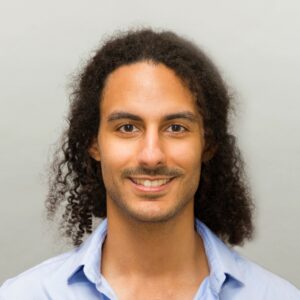
Adam Ibrahim
About
Welcome to my personal website !
I have most recently led the LLM team at H company. I have also worked with Apple, Microsoft, AMD, Staples, Optina Diagnostics and Bosch as a consultant to supervise and mentor research projects in multimodal machine learning, speech recognition, reinforcement learning, image generation, computer vision, large language models and foundation models for scene understanding. Additionally, I have consulted for Blackbox AI, a coding assistant company, and for Zyphra on pretraining and finetuning foundation models, notably by co-leading the development of an efficient model based on a novel LLM architecture, Zamba-7B.
I obtained my PhD from Mila – Université de Montréal. I was supervised by Ioannis Mitliagkas and Irina Rish, and worked with many wonderful collaborators on a wide variety of topics, such as optimisation, out-of-distribution generalisation and adversarial robustness, reinforcement learning, continual learning, etc. I was part of an effort led by Irina Rish to work on large language models (LLMs) as part of the 2023 INCITE allocation program by the US Department of Energy, which has allowed me to gain experience training LLMs from scratch. Generally, the common theme of my research during my PhD has been addressing distributional shifts, which is important for efficient, fair, safe and trustworthy machine learning algorithms.
Before my PhD, I have studied human-computer interaction in the Four Eyes lab at the University of California, Santa Barbara. Working with a multidisciplinary team, I led a research project that highlighted how beneficial Augmented Reality (AR) can be for language learning. I also worked on projects aiming to measure how AR affects the perception of user recommendations. Before that, during my BSc, I was enrolled in the Joint Honours Mathematics and Physics program at McGill University, where I did research in theoretical physics (cosmology and string theory) with Robert Brandenberger and Keshav Dasgupta.
As you might have guessed, I really enjoy all kinds of problem solving, and am always happy to tackle problems in new areas of research!

Recent work
- Why Has Predicting Downstream Capabilities of Frontier AI Models with Scale Remained Elusive? Rylan Schaeffer, Hailey Schoelkopf, Brando Miranda, Gabriel Mukobi, Varun Madan, Adam Ibrahim, Herbie Bradley, Stella Biderman, Sanmi Koyejo. ICML 2025.
- Zamba: A Compact 7B SSM Hybrid Model Paolo Glorioso, Quentin Anthony, Yury Tokpanov, James Whittington, Jonathan Pilault, Adam Ibrahim, Beren Millidge. Technical report.
- Simple and Scalable Strategies to Continually Pre-train Large Language Models Adam Ibrahim*, Benjamin Thérien*, Kshitij Gupta*, Mats L. Richter, Quentin Anthony, Timothée Lesort, Eugene Belilovsky, Irina Rish. TMLR.
* denotes equal contribution